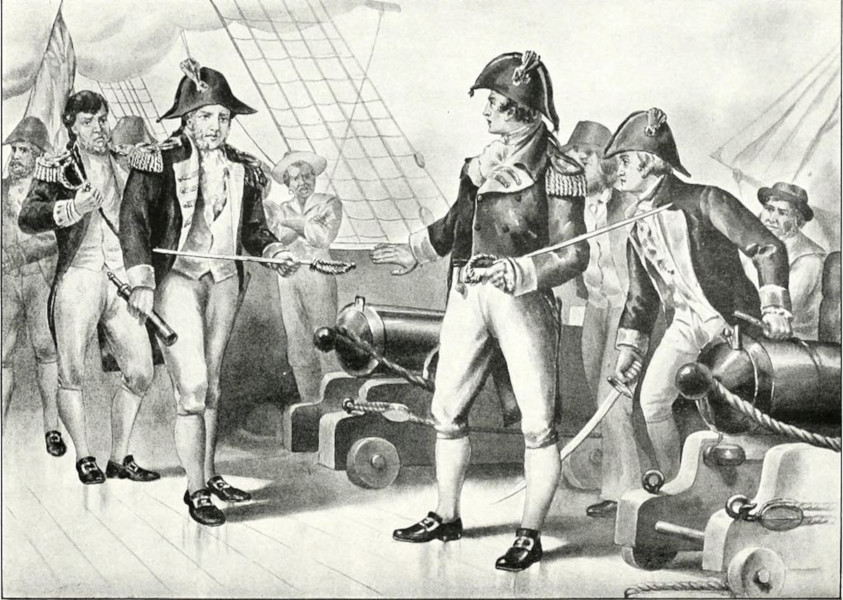Chesapeake–Leopard affair - USA insulted
06/22/1807 AD attacked
Naval engagement that occurred off the coast of Norfolk, Virginia between the British warship HMS Leopard and the American frigate USS Chesapeake.
The crew of Leopard pursued, attacked, and boarded the American frigate, looking for deserters from the Royal Navy.
Chesapeake was caught unprepared and after a short battle involving broadsides received from Leopard, the commander of Chesapeake, James Barron, surrendered his vessel to the British. Chesapeake had fired only one shot.
Four crew members were removed from the American vessel and were tried for desertion, one of whom was subsequently hanged. Chesapeake was allowed to return home, where James Barron was court martialed and relieved of command.
The Chesapeake–Leopard affair created an uproar among Americans. There were strident calls for war with Great Britain, but these quickly subsided.
President Thomas Jefferson initially attempted to use this widespread bellicosity to diplomatically threaten the British government into settling the matter. The United States Congress backed away from armed conflict when British envoys showed no contrition for the Chesapeake affair, delivering proclamations reaffirming impressment.
Jefferson's political failure to coerce Great Britain led him toward economic warfare: the Embargo of 1807
Subjects Who or What attacked?
-
England Nation
Objects To Whom or What was attacked?
Attachments
Chesapeake–Leopard affair Officers of Chesapeake offering their swords to officers of the Leopard, depicted c. 1900
USS Chesapeake depicted in a c. 1900 painting by F. Muller
Events in 1807 MORE














